Resources on the Practice of Simplicity

Overview of Simplicity
By Matt Garcia
This discipline is one of those that the whole world knows it should get behind. Loving your enemy and fasting? Ok, maybe not. But simplicity? Ask anyone from Christian to atheist, republican or democrat. Most in the western world would agree that we own too much stuff and we need to simplify. The hard part is committing to it. But simplicity isn’t just adapting to the minimal lifestyle of consuming less. In the Christian spiritual discipline, simplicity can only be fully grasped by the power of the Holy Spirit. While minimalists are practicing self-care by owning only one car, the Christian who practices simplicity is moved by the Holy Spirit to sell their second car to give to a missionary who needs the monthly support. The practice of simplicity hinges on the idea that God is the creator of everything and we are just stewards of His creation, thus, we need the counsel of the Spirit of God in the decision-making process of what to buy, sell, donate, and steward the possessions entrusted to us.
If you’re reading this on a personally owned smart phone or computer, the chances are that you are in the top 10% of the world’s wealth. This means that, realistically, you have things that most of the world doesn’t have. We are blessed. Whether we were spoon-fed by parents who had good jobs, or worked our way to the middle-class as a first-generation immigrant – you are blessed if you’re reading this.
So here’s the hard part: how much is too much stuff? Is the entry way to greed when you rent a second storage unit to store the things you don’t want to get rid of? What about if you can no longer fit a single automobile in your two-car garage because you have too many stacks of cardboard boxes? Oh, I got it, what if the line is when you upgrade to the latest iPhone every year even if the previous model works fine? We all draw the lines on what is over the top luxurious and what is considered impoverished living.
This is where the conviction of the Holy Spirit comes in. As we pray about our yearly budget and our consumption habits, God’s Spirit will guide us on next steps to take to practice simplicity in our lives. For someone who’s been on an episode of A&E’s HOARDERS, ideas on what to do will be easy. For a college student living off of minimum wage, the chances are they are already living the simple life – but not by choice. However, the goal for the simple life Jesus offers us is, as Richard Foster says, to have a “joyful unconcern for possessions.” This means that as we keep practicing over the years, it will be easier and easier to limit impulse buying, donate items to charity, decline the offer to accept free stuff, and limit the selection of pantry items. Remember, this isn’t necessarily about asking “What would Jesus do?” Try a different approach. Ask the question, “What would Jesus do if He were me?” You’re not a Jewish itinerate rabbi in the first century. You are a single mother raising two kids. You are a student studying journalism. You are a business owner supporting a family. Based on who you are and what season of life you are in, how can you practice the ancient spiritual discipline of simplicity?
“No matter where you live, your emotional well-being is as good as it’s going to get at $75,000 … and money’s not going to make it any better beyond that point. It’s like you hit some sort of ceiling, and you can’t get emotional well-being much higher just by having more money.”
Secular Comparisons
Minimalism
- style of architecture or design
- organizing your possessions
- Holy Spirit guidance not necessary
- goal: to not let possessions rule us
Simplicity
- a posture of love
- devaluing your possessions
- Holy Spirit guidance is necessary
- goal: to be like Jesus

Spiritual Exercises
Let Go
Uncomplicate your life by choosing a few areas in which to practice “letting go”. Some examples include, cleaning out a cluttered room, going on a simple vacation, or eating more simply.
Two Car Garage
The garage has become an ironic staple in American society. Many people have two cars and two car garages, however, most don’t have enough space to park their cars in the garage. If you cannot fit a car into your garage, clean, organize, throw away, or donate items to fit at least one car in your garage.
Limit
Intentionally limit your choices. Do you need six different kinds of breakfast cereal, hundreds of TV channels, or 500 books? If you have 20 pairs of shoes, downsize to 7 pairs – one for each day of the week. If you have 7, downsize to 3.
Give Away
If someone admires something of yours, give it away to them. Find out just how attached you are to your things.
Have a “give away” box in your home that you regularly take to the local donation station.
Yard Sale
Host a yard sale and sell or give away things you don’t want or need. Instead of pocketing the profits, give it away to a designated missionary or charity.
Smart Phone
Our phones do not naturally allow for simplicity. It wants to bombard us with information and choices. Intentionally turn your smart phone into a dumb phone by turning off notifications, enabling down time and screen time, and even customizing the home screen to just a few apps.
Transportation
If you can get where you need to go by walking rather than driving, try walking. In this practice, you will both slow down to hear the voice of God and discover how a car is of less importance than you thought it was.
True Cost
Before you buy something, ask yourself, “What is the true cost of this item?” Can you actually afford it? How much time will it cost you to own it? How often will I use it? Will it add value to your life and help you enjoy God and his world even more? Will it distract me from what really matters?
Justice & Peace
Before you buy, ask yourself, “By buying this, am I oppressing the poor or harming the earth?” Much of the clothing industry is hurting the poor around with world where there is little to no labor regulations. Many types of clothing are not biodegradable and will end up in landfills taking up space. Research what you buy. Avoid buying from companies that oppress the poor or harm the earth.
Never Impulse Buy
Practice self-control and when you see an item you want, just sit on it for a while. The more expensive the item, the longer you should wait. Pray about it.
”Quality
When you do buy, opt for fewer, better things. In an attempt to save money, we end up buying a lot of cheaply made items. Instead, live without them for a while and buy a quality item that will last. A great motto to live by is: “Buy it once.”
Share
When you can, share possessions. Maybe sharing cars with friends who live close by can be an option. Share your lawn mower with a neighbor and he can share his weed eater with you.
Call Out The Lie
Play a new game with your friends and family. Whenever you see an advertisement for a product or service, stop, listen, think and call out the lie. For example, a car commercial shows a happy family riding down a country road. They want you to buy the car so you and your family could be happy. But that’s a lie. Call it out by saying, “The DVD player in the car won’t make your family happy, but instead will limit valuable family conversations.” Recognize advertising for what it is – propaganda.
Cultivate
Cultivate a deep appreciation for creation and simple pleasures. Breath a few good, deep breaths and thank God for oxygen. On an afternoon stroll, thank God that you have legs that work like they should.
“Simplicity is an inward reality that can be seen in an outward lifestyle.”

Books on Simplicity
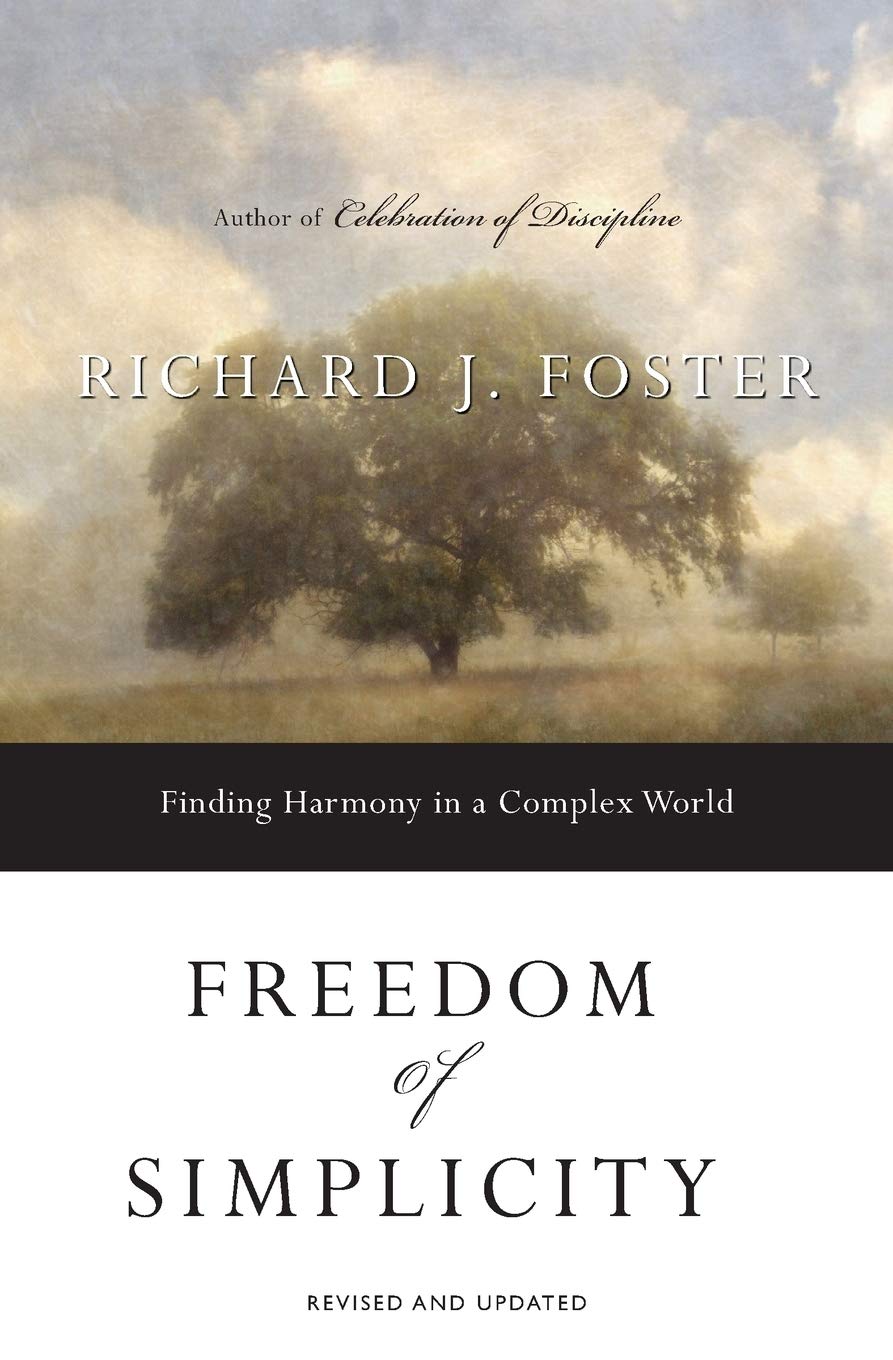
Freedom of Simplicity
Richard Foster
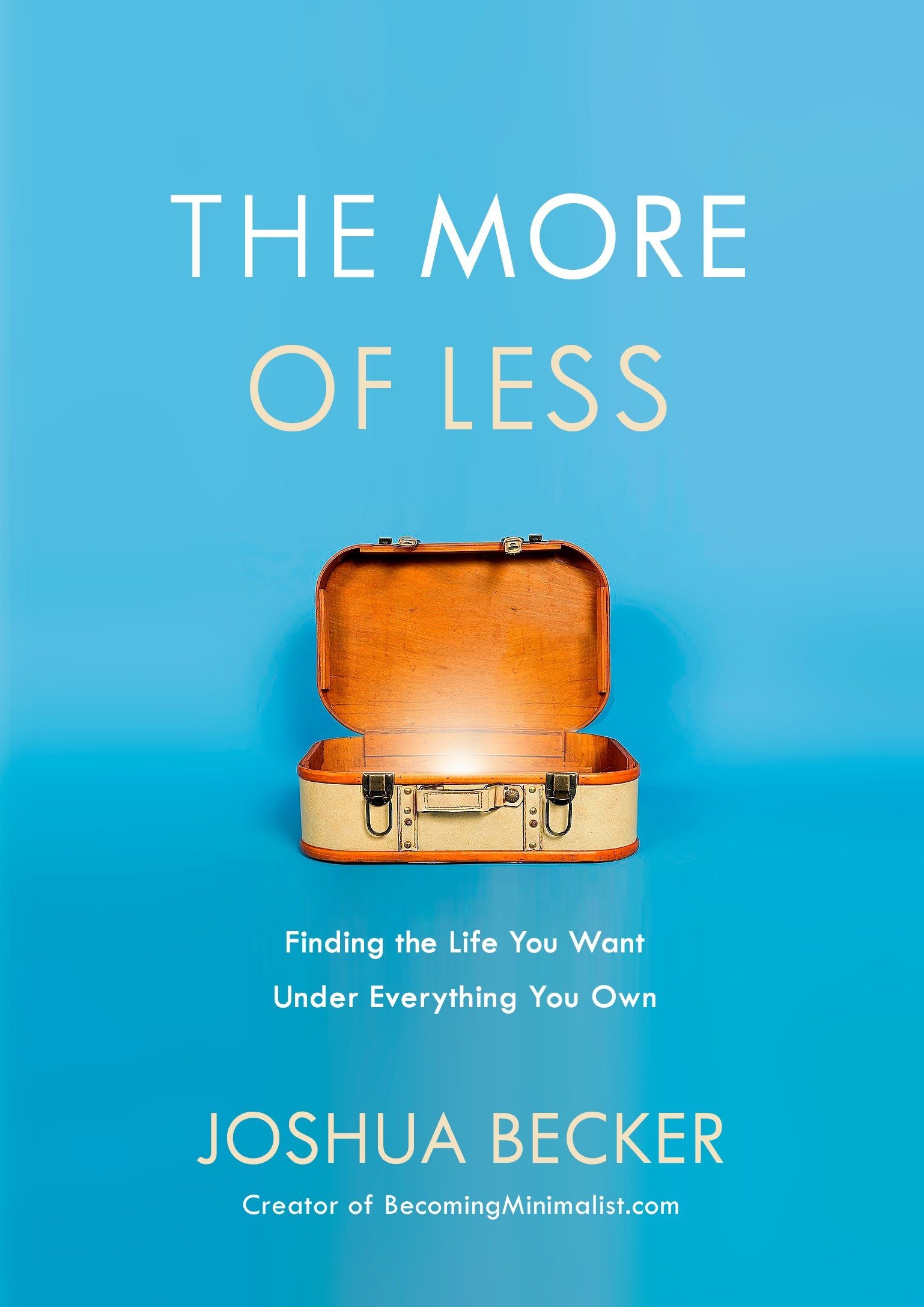
The More of Less
Joshua Becker
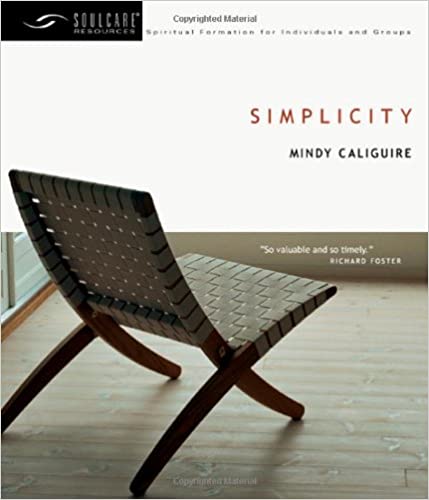
Simplicity
Mindy Caliguire
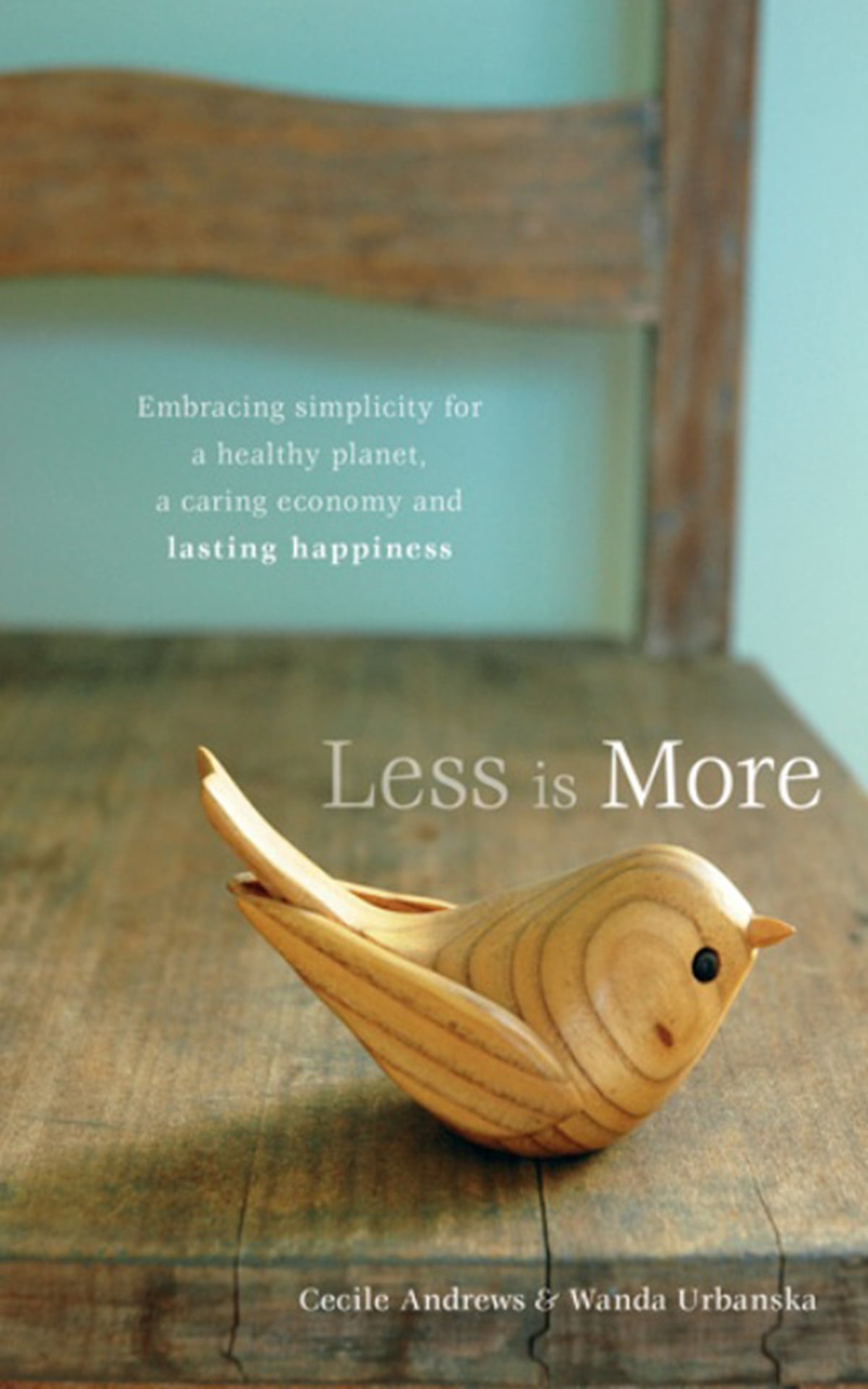
Less Is More
Cecile Andrews & Wanda Urbanska
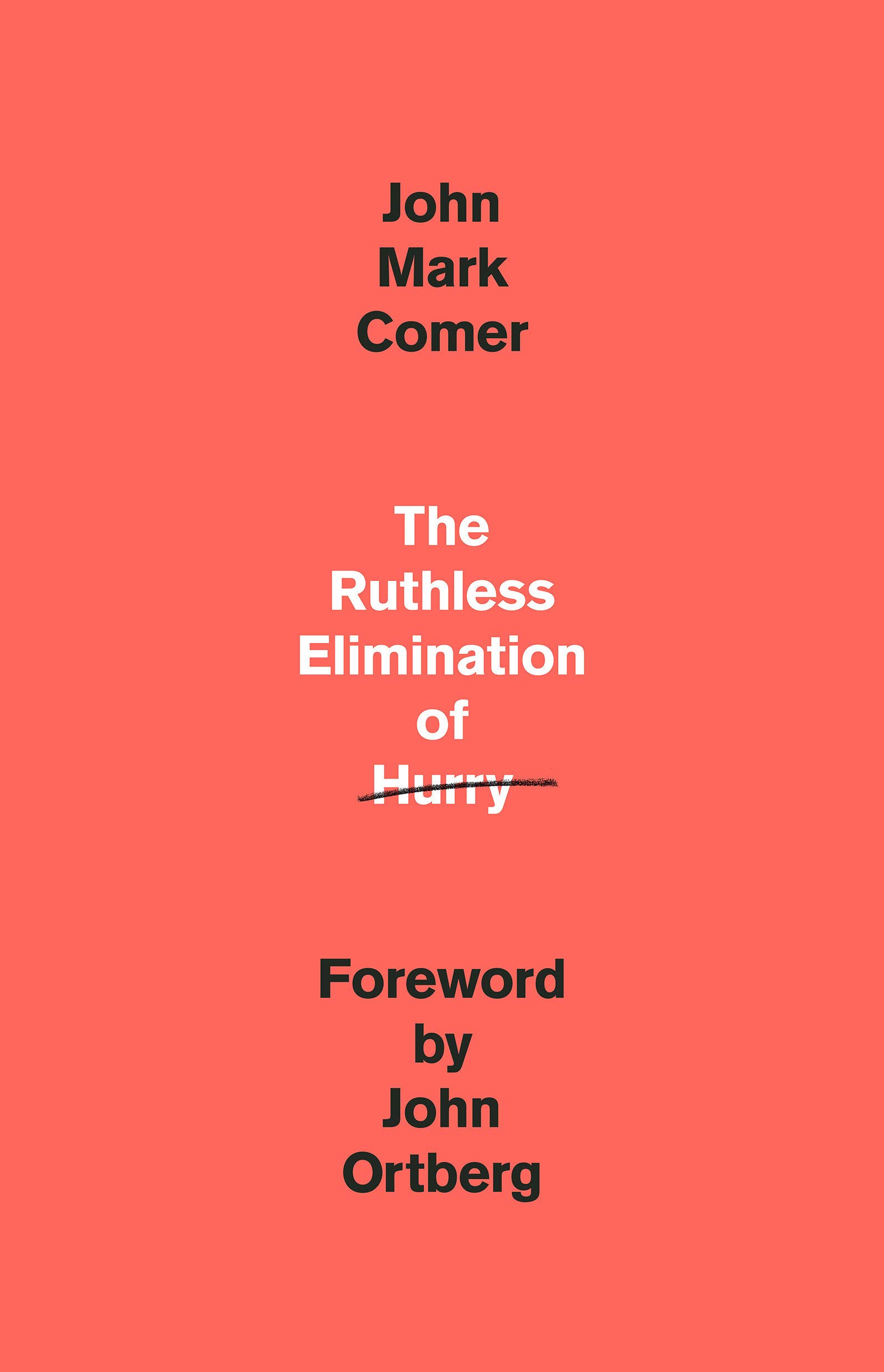
The Ruthless Elimination of Hurry
John Mark Comer
“I am learning . . . that a man can live profoundly without masses of things.”

Podcasts on Simplicity
Message Series on Simplicity
Bridgetown Church Podcast
The Spiritual Discipline of Simplicity
Cultivate Podcast
Simplicity
The Practice Podcast
Learning From Franciscan Friars
Emotionally Healthy Podcast
Abundant Simplicity
Renovare Podcast
“The inward reality of simplicity involves a life of joyful unconcern for possessions.”

Videos on Simplicity
“In everything, love simplicity.”

Blogs on Simplicity
Creating Margin
A Season of Simplicity
Simplicity
“For a lot of people, things aren’t just things; they are identities.”

Reflection Questions
1. In what ways are you susceptible to the entitlement mentality of our age?
2. How has the “more is better” mentality shaped you?
3. Do you envy those who have more things or more opportunities than you? Explain.
4. How much of your identity is wrapped up in what you own and where you go? Who are you without all these acquisitions and opportunities?
5. What is it like for you to give away things you still want and like?
6. When have you downsized? What was it like for you?
Matt Garcia
Matt is the creator of this website and curates resources on spiritual formation. He is a husband of Jesika and a father of 4 children. He also helps lead a house church. Follow him on Instagram to see what he's up to.
